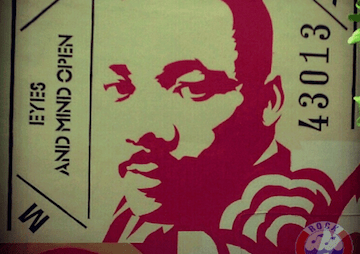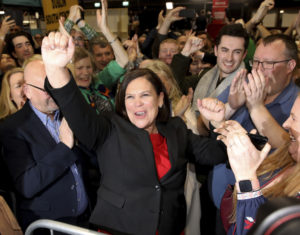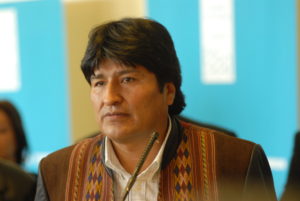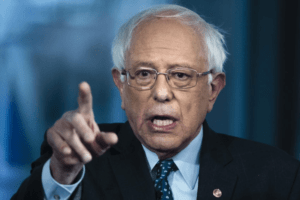Re-Establishing King
"There is probably no figure in recent American history whose memory is more distorted, whose message more bowdlerized, whose powerful words are more drained of content than King," University of Pennsylvania history professor Thomas J. Sugrue writes at Jacobin. Rock Cousteau (CC BY-SA 2.0)
Rock Cousteau (CC BY-SA 2.0)
“Every year, in January and April, we commemorate the extraordinary career of the Reverend Martin Luther King, Jr. But there is probably no figure in recent American history whose memory is more distorted, whose message more bowdlerized, whose powerful words are more drained of content than King,” University of Pennsylvania history professor Thomas J. Sugrue writes at Jacobin.
“A few years ago, in preparation for a public lecture on 1968, I re-read the most important book on King and his politics to come out in the last decade: Thomas F. Jackson’s ‘From Civil Rights to Human Rights: Martin Luther King, Jr. and the Struggle for Economic Justice.’ Jackson, a former researcher with the King Papers project at Stanford, has read King’s every last sermon, speech, book, article, and letter. What Jackson finds is that from the beginning of his ministry, King was far more radical, especially on matters of labor, poverty, and economic justice than we remember. In media accounts, King was quickly labeled the ‘Apostle of Non-Violence,’ and, by the mid-1960s, portrayed as the antithesis to Malcolm X. While King adhered to nonviolence for his entire career, the single-minded focus of the media on the horse race between Malcolm and Martin led reporters to ignore King’s more radical pronouncements. They simply didn’t fit into the developing story line.
“Black power advocates also distorted King, focusing on his ministerial style and arrogance (members of SNCC called him ‘de Lawd’). They branded King as hopelessly bourgeois, a detriment rather than a positive force in the black freedom struggle. White liberals, fearful of black unrest, embraced King as a voice of moderation, hoping that he could stem the rising tide of black discontent that exploded in the long hot summers of the mid-sixties. The representation of King as mainstream left observers unable to make sense out of King’s opposition to the Vietnam War, his call for an interracial Poor People’s Movement, and his increasingly vocal denunciations of class inequality in America.
“King, they contended, had been radicalized or, perhaps, was more calculating in his leftward move, changing his rhetoric to remain a legitimate leader in the eyes of younger, angrier blacks. But as Jackson shows, King was anything but a milquetoast racial liberal or a radical-come-lately. Through a close reading of King’s work, Jackson finds deep currents of anti-imperialism running through King’s thought, going all the way back to his days as a student. He finds a consistent thread of anti-capitalism in King’s speeches. And he finds that King was building alliances with the left-wing of the labor movement and allying himself with activists who called for structural change in the economy. King, in other words, was a radical well before he offered his prophetic denunciation of the Vietnam War in 1967 or joined the Memphis sanitation workers on strike in 1968.
“King’s radicalism is lost to the obfuscating fog of memory. In American culture today, we have several Martin Luther King, Jrs: the Commemorative King, the Therapeutic King, the Conservative King, and the Commodified King. Each of these Kings competes for our attention, but each of them represents a vision of King that he himself would not have recognized.”
Read the rest of Sugrue’s article at Jacobin here.
— Posted by Alexander Reed Kelly.
Your support matters…Independent journalism is under threat and overshadowed by heavily funded mainstream media.
You can help level the playing field. Become a member.
Your tax-deductible contribution keeps us digging beneath the headlines to give you thought-provoking, investigative reporting and analysis that unearths what's really happening- without compromise.
Give today to support our courageous, independent journalists.






You need to be a supporter to comment.
There are currently no responses to this article.
Be the first to respond.